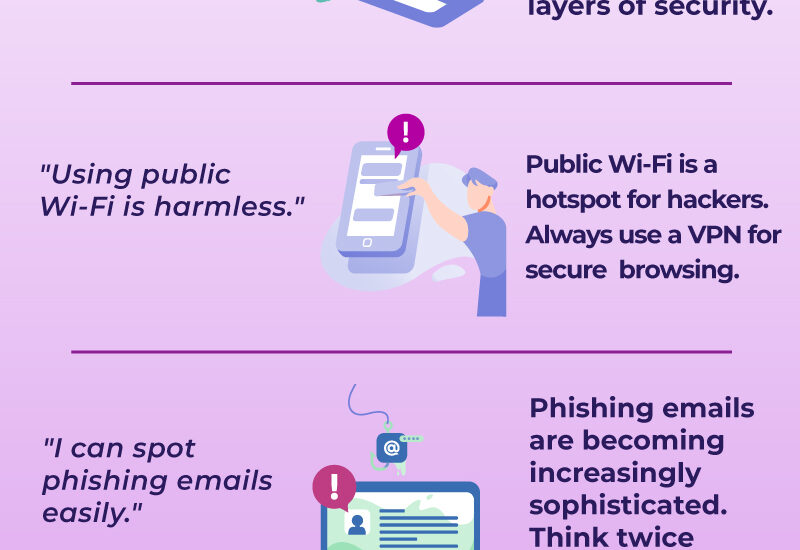
There’s been a lot of hype around cryptocurrency, especially when Bitcoin – a type of cryptocurrency – hit the $10,000 and $19,000 trading price in November and December last year.
Naturally, anyone who could afford it wanted to buy or invest in Bitcoin, hoping to make more money out of the new currency that was disrupting the digital space.
At the same time, unscrupulous individuals saw the popularity of Bitcoin as an opportunity to trick people into shady deals. Already, unsuspecting crypto investors have fallen victim to fraud, losing their money to scammers.
Some reports say an estimated 30,000 people worldwide have been duped into paying an initial investment of $100 after being promised by con companies on social media that their investment could earn them $80,000 monthly. Unfortunately, cryptocurrencies are not regulated by bank or government laws, so recovering losses might not be easy.
This shows that scams have already reached the cryptocurrency market, so at this point, the wisest thing to do is to be aware of the red flags of cryptocurrency scams to know which deals are for real and which ones are just trying to steal money from you.
The infographic tells you everything you need to know about fraudulent cryptocurrency schemes.

Cryptocurrency scams are costly. From January to February 2018 alone, about 22 fraudulent crypto cases resulted in thefts worth $400,000 or more.
If you average it out, that could translate to $9.1 million losses a day. And if things continue to take a turn for the worse, cryptocurrency enthusiasts and investors could lose $3.25 billion to scammers and hackers by the end of 2018.
Common Examples of Cryptocurrency Scams
Initial Coin Offering (ICO) fraud
There are two ways that ICO fraud may happen. First, scammers may create a fake ICO and get people to invest in it because they think it’s legitimate. The other is when hackers clone a legitimate ICO and trick investors into paying them instead of the real company.
Phone porting
This scam involves the manipulation of someone’s phone number, where your mobile provider could end up giving control of your account to thieves.
Once criminals have your mobile number, they would be able to access your digital wallet and take whatever is in it.
Fake digital wallets
Digital wallets are used to store cryptocurrency. However, just like other consumer products, there are fake versions of digital wallets. These fake wallets may be in the form of apps, which could cost about $5 to download.
In some cases, unauthorized websites would ask cryptocurrency owners to give them the private keys to their account, making it possible for scammers to empty their target wallets.
Bitcoin-stealing malware
Malicious software (malware) can steal crypto money by stealing crypto users’ log-in credentials to their crypto account or the contents of their wallet.
It’s also possible for malware operators to intercept cryptocurrency in the middle of a transaction.
Signs of Cryptocurrency Scams
Bold claims on returns
Fraudsters would try to lure you into investing in cryptocurrency with a promise that you’ll get profits on a daily or monthly basis. Scammers usually promote too good to be true claims and encourage you to join any of the following:
1. Cloud mining services
Mining refers to the process of generating digital money as your reward for solving complex mathematical equations within the cryptocurrency network. Mining usually requires you to buy your computing hardware, but in this scheme, you’ll be asked instead to pay an initial capital to participate in crypto mining operations.
2. Bitcoin investment packages (BIPs)
BIPs employ the Ponzi scheme, where returns are generated for old-time investors at the expense of newer investors. Once new investors stop coming in, you also stop receiving your payouts or profit.
Misleading details
Con artists tend to use complex language to cover up their illegitimate or unworthy operations. They will try to impress you with cryptocurrency speak when explaining how their system works or how you can make a profit on their platform.
With NOAHCOIN, we break down everything you need to know using easy-to-understand language so that you could make well-informed decisions when you decide to use NOAHCOIN.
Lack of communication
Unlike legitimate ICOs, you might not be able to find cryptocurrency scams on social media or discussion forums that answer questions from their followers. You also won’t see them posting on their own blog sites or other key communication channels if you want to know the progress of their cryptocurrency projects. NOAHCOIN gives regular status updates on its website and social media page.
No whitepaper
Another red flag to watch out for is when an ICO company fails to provide a whitepaper for the reference of its users.
A white paper will tell you exactly how the cryptocurrency platform works, including technical details but in a simplified version. It should also explain the overall and specific goals of the company, as well as how the digital tokens will be used, including information about how many tokens will be supplied to the cryptocurrency community.
Please refer to the NOAHCOIN whitepaper 2018 for an in-depth discussion of the Noah project.
No code repository
Cryptocurrency projects should be open sourced, which means crypto owners should have a link to see the codes of a project. Having a code repository or code base allows anyone in the crypto community to track any changes in the project.
A cryptocurrency that does not provide the links to its code is likely a scam. When you use the NOAHCOIN, you’ll be using the open-sourced Ethereum blockchain technology.
Compromised escrow
An escrow refers to a service that holds your cryptocurrency funds during and after an ICO. Its aim is to prevent your funds from being moved without the approval of two or more trusted members of your cryptocurrency community and one team member of the cryptocurrency project.
In scam projects, fraudsters could pose as an escrow and be able to move funds illegally.
Ghost team members
It’s quite easy to tell a cryptocurrency scam just by looking up the people behind the project. When you’re dealing with a team that has secret or anonymous identities, it’s usually a sign that they’re trying to hide something from the public. Others might choose to create fake profiles of their team members.
As for NOAHCOIN’s founding team and advisory board, they are well-known personalities and experts in the cryptocurrency space and in the financial industry.
Whether you’re a cryptocurrency enthusiast or owner, it pays to be vigilant and aware of how scammers operate through fraud. Unless you’re sure that the cryptocurrency is legitimate and secure, you might want to hold off your plans of buying.
NOAHCOIN provides a legal and safe system of transacting in the digital currency space.
Source: NOAHCOIN
![]()










